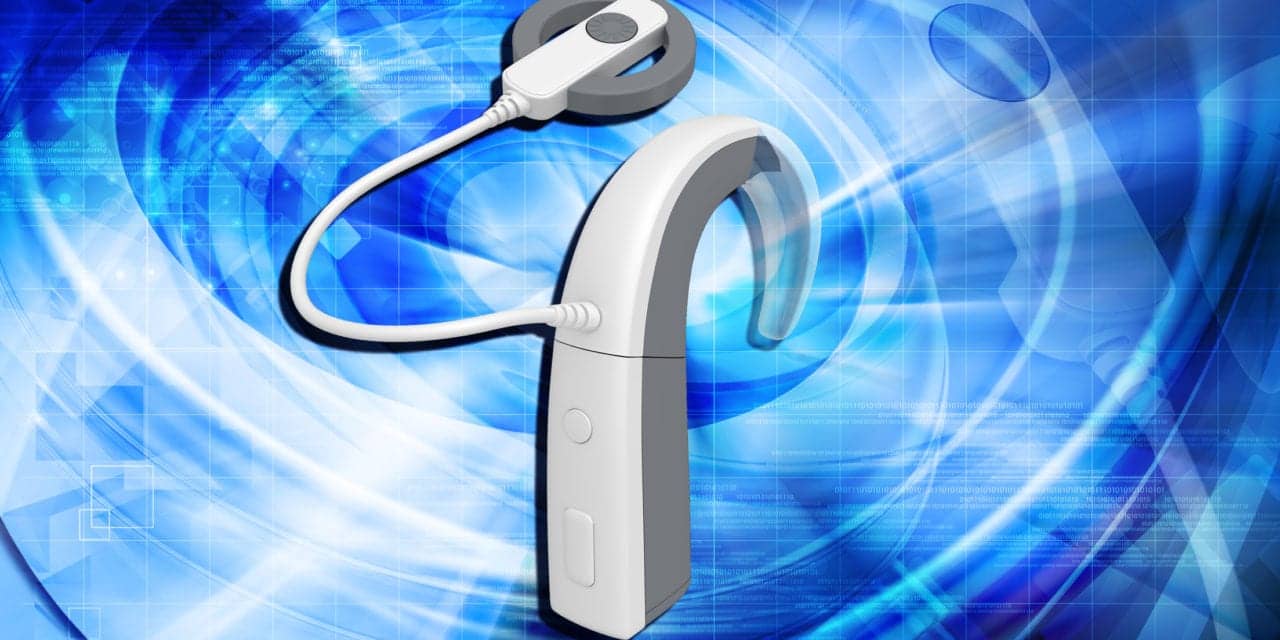According to a March 12, 2015 article in the online edition of JAMA Otolaryngology-Head & Neck Surgery, researchers in France have found that cochlear implantation is associated with improved brain function and speech perception in adults 65 years or older with profound hearing loss. The study shows that hearing impairment has been associated with cognitive decline and, in cases of severe to profound hearing loss where there is no benefit from hearing aids or other amplification, cochlear implantation has proved beneficial for many older patients.
An announcement from The JAMA Network reports that Isabelle Mosnier, MD, of Assistance Publique-Hopitaux de Paris, France, and coauthors examined the relationship between cognitive function and hearing restoration with cochlear implantation in older patients at 10 tertiary referral centers between 2006 and 2009. The study included 94 patients (ages 65 to 85) with profound post-lingual hearing loss who were evaluated before cochlear implantation and then 6 and 12 months after.
The study results showed that cochlear implantation was associated with improved speech perception in quiet and in noise, according to JAMA. Additionally, quality of life and depression scores improved after cochlear implantation. The study authors report that improvements were seen in cognitive function scores as early as six months after cochlear implantation. More than 80 percent of the patients (30 of 37) who had the poorest cognitive scores before implantation improved their cognitive function one year after implantation, report the authors. In contrast, patients with the best cognitive performance before implantation showed stable post-implantation results, although there was a decline in some patients, according to the results.
“Our study demonstrates that hearing rehabilitation using cochlear implants in the elderly is associated with improvements in impaired cognitive function,” the study authors said in the news announcement from JAMA. “Further research is needed to evaluate the long-term influence of hearing restoration on cognitive decline and its effect on public health.”
For more details about the study, including other authors and funding, please see the original article on The JAMA Network.
Among many studies, The Hearing Review recently published a report on research related to hearing and cognition as presented by Frank Lin, MD, PhD, at the 2014 Academy of Doctors of Audiology (ADA) conference, as well as a special expert roundtable about the brain and hearing moderated by Douglas Beck, AuD, in the September 2012 HR.
Source: JAMA Otolaryngology-Head & Neck Surgery





